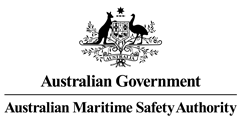Beyond Covid — building a strong future for the maritime community
Our maritime future depends on improving diversity and strengthening opportunities for all Member States to participate at IMO
THE Covid-19 pandemic has shone a spotlight on the fragility of global supply chains and brought the human faces of the maritime industry to the forefront of the public’s mind.
At the same time, the increased demand on shipping carriers has resulted in record profits. In the second quarter of 2021 alone, the combined operating profit of the top 11 carriers worldwide was $13.3bn.
The question now for the International Maritime Organization, maritime states and industry, is how do we best use this newfound visibility (and prosperity) to position the maritime community for the future?
“I believe our most pressing priority is to improve conditions and opportunities for seafarers and maritime industry entrants. We know seafarers have kept much of the world’s trade going during the pandemic and have made many sacrifices for the common good,” says Mick Kinley, chief executive officer of the Australian Maritime Safety Authority.
“We also know that other industries are already facing a ‘great resignation’ and increased competition for employees. The maritime community will be no exception, and we need to compete for the best and brightest.”
The IMO declared seafarers, at the core of shipping’s future, as the theme of World Maritime Day in 2021 and has launched a range of initiatives to improve conditions and opportunities for seafarers.
“Australia supports this critical work, both as an engaged IMO member state and as a donor to the IMO’s Integrated Technical Co-operation Fund. Domestically, we address every complaint raised by seafarers entering Australian ports and take action to bring shipping operators that violate Maritime Labour Convention requirements into compliance, including by banning repeat offenders from our ports. To better understand the risks posed to seafarer safety, Australia continues to work at the ILO for greater reporting on fatalities at sea,” says Mr Kinley.
The IMO’s work to achieve greater gender equality in the maritime community is another focus area that Australia believes will better position the sector for the future. Women represent just 1.2% of the global seafarer workforce. Increasing women’s participation presents a huge opportunity in the search for talent.
“Groups such as the Women’s International Shipping & Trading Association and the Pacific Women in Maritime Association are doing a wonderful job of increasing opportunities and visibility for maritime women,” says Mr Kinley.
The IMO’s recent establishment of an IMO Day of Women in Maritime is seen as another significant step.
“We need to maintain this momentum to build our future workforce and achieve gender equality in the future. Of course, decent and safe living and working conditions for all seafarers is also critical to success in this area,” says Kinley.
The IMO is strongest when all states have a fair opportunity to represent their unique interests. Australia is committed to improving opportunities for member states to fully participate in the IMO and we are proud to partner with Pacific and Indian Ocean maritime agencies to deliver programmes to strengthen the region’s capability to implement international maritime conventions.
Amsa says those initiatives will be considerably strengthened by the IMO’s recent decision to establish a Regional Presence Office in the Pacific. The IMO’s recent investments in technology could allow hybrid meeting participation and have huge potential to increase member states’ participation during and beyond the pandemic. A multi-donor trust fund to help developing nations attend key IMO meetings in person will ensure all member state voices can be fairly represented.
Australia has long championed increased transparency of IMO discussions and decisions, believing such openness contributes to the IMO’s reputation as a socially responsible organisation and strengthen public understanding of the vital role shipping plays in the international community. Transparency is core to achieving broader goals to develop a safe, sustainable and respected maritime sector.
“Shipping tends to grip the public imagination in times of disruption. The current upheaval presents an opportunity and a challenge for the IMO and maritime nations to work collectively and transparently to guide the maritime community into a bright and successful future,” says Mr Kinley.

